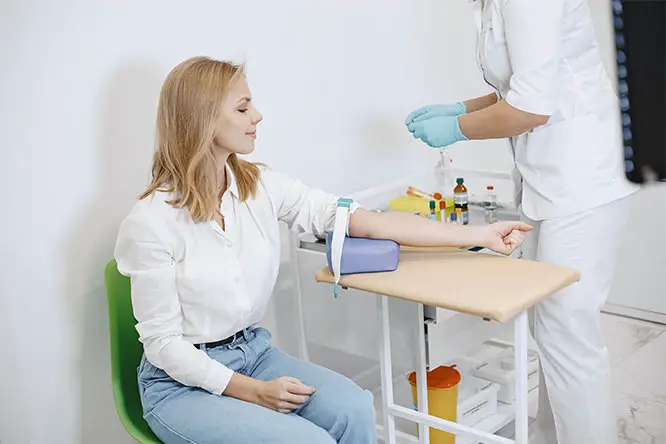The Significance of Health Assessments at Every Life Stage

The Importance of Health Screenings at Every Age
Many people tend to skip regular health screenings, only visiting the doctor when symptoms or health issues appear. But is there any benefit in scheduling check-ups when you feel perfectly healthy? Absolutely. Health screenings can detect conditions like diabetes and high cholesterol—issues that often show no obvious symptoms but can have a major impact on your well-being. A simple blood test can reveal hidden health concerns that might otherwise go unnoticed.
While the idea of a needle might make some people uneasy, recent advances in blood test technology have made home testing more accessible. With a home blood test kit, you can take a small sample of blood by pricking your finger, then send it to a nearby lab. The results can provide critical insights into your health, such as potential liver or kidney problems, nutrient deficiencies, or hormonal imbalances.
Health Screenings for Every Decade
Health screenings are key to detecting deficiencies in vital nutrients from your diet. These tests offer a clear picture of whether your body is properly absorbing essential vitamins, proteins, and macronutrients.
Health Checkups in Your 30s
By your 30s, you may start encountering some health concerns. Issues like elevated cholesterol can affect even young and fit individuals, often without any noticeable symptoms. Regular check-ups help catch these issues early, allowing for timely treatment and management. Testicular cancer, for example, often begins as a painless lump. If you notice any unusual lumps, consider an ultrasound to rule out potential cancer.
Health Checkups in Your 40s
As you enter your 40s, the risk of conditions like diabetes, high blood pressure, and heart disease increases. Blood tests to monitor sugar levels and blood pressure are critical at this stage. Additionally, keeping an eye on your weight, height, and blood pressure helps assess your risk for strokes or heart issues. Chest pains at this age can be a warning sign of a stroke and should be checked immediately.
Health Checkups in Your 50s
Hormonal changes and a higher risk of heart problems are common in your 50s. Many men experience a drop in testosterone levels after 50, which can lead to symptoms like erectile dysfunction, mood swings, and decreased libido. The risk of cancer also rises, with men becoming more susceptible to prostate and bowel cancer.
Health Checkups in Your 60s
For those in their 60s and beyond, annual health screenings are strongly recommended. Home screening kits become especially helpful, allowing you to keep an eye on your health from the comfort of your home. A PSA blood test, for example, can help detect early signs of prostate cancer.
In Conclusion
Today, chronic illnesses are affecting people at younger ages, often due to lifestyle habits and poor diet choices. As we grow older, the risk of developing chronic diseases increases. Regular health screenings are crucial at every stage of life, providing doctors with the medical history they need to make informed decisions for your future care.




